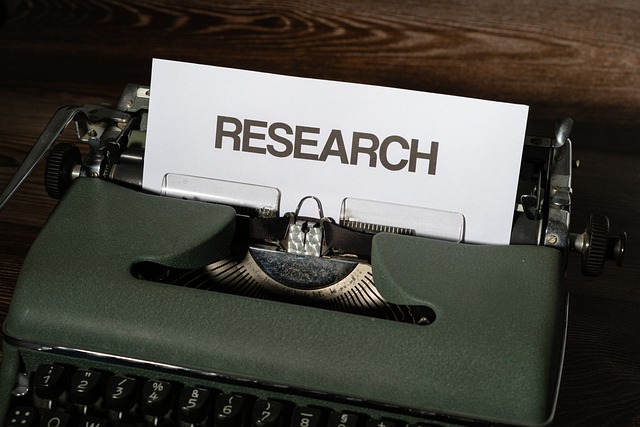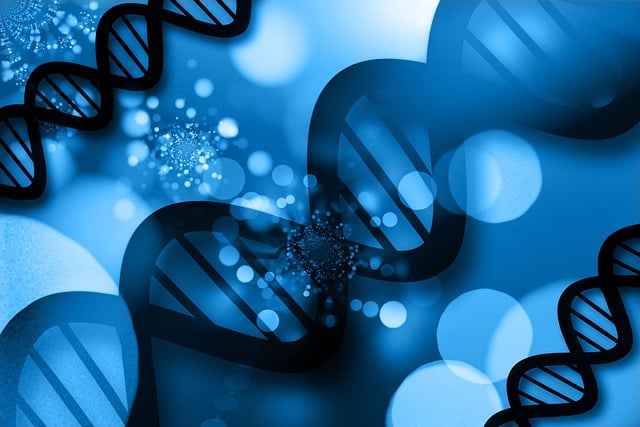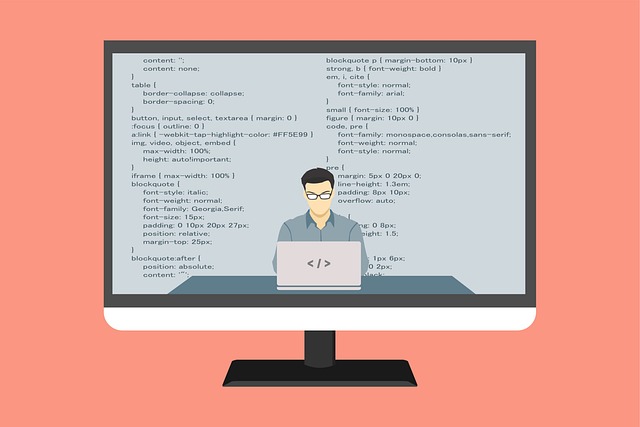The section discusses the critical importance of translation services for UK Research and Development (R&D) documents, emphasizing that translators must not only be linguistically proficient but also have specialized knowledge in scientific, technological, or medical fields. These experts are tasked with accurately conveying the intricate details, technical terminology, and original research intent from UK R&D papers to an international audience. To ensure effectiveness, translation service providers should employ native speakers with backgrounds relevant to the domain of the research. Additionally, cultural adaptation is necessary to make the translated materials relevant and applicable within diverse contexts, adhering to local legal standards, idioms, units of measurement, and data presentation formats. This cultural sensitivity and attention to detail are crucial for facilitating international collaboration and expanding the global reach and influence of UK innovation, making translation services for UK R&D documents indispensable in the global scientific community.
Navigating the complexities of UK research and development (R&D) requires meticulous documentation, a task that hinges significantly on the clarity and precision of translation. This article delves into the critical role of top-tier translation services for UK R&D documents, highlighting the challenges and best practices to ensure global comprehension and compliance. From the technical accuracy demanded by scientific texts to the subject matter expertise that brings clarity to complex concepts, we explore the multifaceted nature of translating R&D materials. Through case studies and practical guidance, this piece serves as a compass for those looking to effectively communicate their UK R&D documents in a multilingual world.
- The Necessity of Precise Translation for R&D Documents in the UK Context
- Understanding the Role of Professional Translation Services in R&D
- Common Challenges in Translating Research and Development Documents
- Key Considerations for Choosing a Translation Service Provider for R&D Materials
- The Importance of Technical Accuracy and Subject Matter Expertise in Translations
- Case Studies: Successful R&D Projects Enhanced by Quality Translations
- Navigating Legal and Compliance Requirements in R&D Document Translation
- Best Practices for Translating and Localizing UK R&D Documents for Global Audiences
The Necessity of Precise Translation for R&D Documents in the UK Context

In the UK’s dynamic research and development (R&D) landscape, the precision of translation services for UK R&D documents is paramount. The stakes are high when it comes to scientific communication, as nuanced terminology and complex concepts are often at play. Accurate translations ensure that the intended meaning is conveyed without ambiguity or error, which is crucial for the progression of research and the integrity of findings. Any deviation in translation can lead to misinterpretation, potentially hindering collaboration, funding acquisition, and the dissemination of critical information. Hence, it is imperative to engage with translation services that specialize in the technical and specialized lexicon inherent to R&D documents, thereby maintaining clarity and facilitating effective communication both domestically and internationally.
Choosing the right translation services for UK R&D documents is a strategic decision that can significantly impact the outcome of research projects. These services should not only possess a deep understanding of scientific language but also be well-versed in the cultural nuances that might affect the interpretation of data or instructions. The translators must be adept at localizing content, taking into account the target audience’s background and context, to ensure that the translated documents are both accurate and relevant. This level of expertise is essential for bridging gaps between researchers, institutions, and other stakeholders, thereby fostering innovation and advancing the frontiers of knowledge in the UK’s R&D sector.
Understanding the Role of Professional Translation Services in R&D

In the dynamic landscape of UK Research and Development (R&D), the precision and clarity of communication are paramount. The role of professional translation services in this context is not merely to transcend language barriers but to facilitate a seamless exchange of complex scientific and technical information. These services play an instrumental part in ensuring that UK R&D documents, which often contain intricate details and innovative concepts, are accurately translated into the target language. This accuracy is crucial for maintaining the integrity of research findings and for effective collaboration across international borders. High-quality translation is not a trivial matter; it involves expert linguists who specialize in scientific terminology and methodologies, ensuring that every nuance and detail of the original document is preserved. By leveraging such services, researchers can confidently share their discoveries, secure funding, and engage with global R&D communities, all while protecting the intellectual property inherent in UK research documents. This not only enhances the efficiency of the R&D process but also contributes to the advancement of knowledge across disciplines, making professional translation services an indispensable tool for the UK’s scientific endeavors.
Common Challenges in Translating Research and Development Documents

When translating UK research and development documents, professionals face a myriad of challenges that can significantly impact the accuracy and effectiveness of communication across different languages and cultures. The intricate nature of R&D documentation, which often includes specialized terminology, methodological descriptions, and complex data, demands a high level of expertise from translation services for UK research and development documents. One common challenge is the precise rendering of scientific terms that may not have direct equivalents in other languages, necessitating a deep understanding of both the source and target linguistic contexts. Another hurdle is ensuring consistency throughout the document, especially when dealing with technical jargon or recurring references that are crucial for maintaining the integrity of research findings.
Furthermore, translators must navigate the cultural nuances that can alter the meaning of concepts within R&D materials. This includes not only the translation of text but also the interpretation of figures, charts, and other visual elements that may convey specific meanings or data interpretations unique to UK research practices. Additionally, the translator’s proficiency in the subject matter cannot be overstated; a strong grasp of both the scientific content and the linguistic nuances is essential to provide translation services for UK research and development documents that are both technically accurate and culturally appropriate. The collaboration between expert translators and subject-matter experts often proves indispensable in overcoming these challenges, ensuring that the translated documents accurately reflect the original content’s intent, thereby facilitating effective global scientific communication.
Key Considerations for Choosing a Translation Service Provider for R&D Materials

When delving into the realm of UK Research and Development (R&D), the accuracy and clarity of documentation are paramount. Translation services for UK R&D documents must be precise, as they bridge the gap between innovation and global collaboration. Choosing a translation service provider that specializes in scientific and technical language is crucial to maintain the integrity of research findings and experimental data. These providers should possess a deep understanding of industry-specific terminologies and the ability to convey complex information accurately across different languages.
Evaluate potential translation service providers based on their expertise, quality assurance processes, and experience with similar R&D materials. Look for companies that employ native speakers and translators with backgrounds relevant to your field of study. Their proficiency not only in language but also in the context of R&D is essential to ensure that technical nuances are captured without compromise. Furthermore, consider providers that offer additional services such as proofreading by subject-matter experts and those that utilize advanced translation technologies to guarantee consistency and accuracy throughout your documentation. This due diligence will safeguard your research’s global impact and facilitate effective communication with international collaborators.
The Importance of Technical Accuracy and Subject Matter Expertise in Translations

When it comes to research and development within the UK, the accuracy and clarity of documentation are paramount. The translation of UK R&D documents into other languages is a complex task that demands a high level of technical accuracy due to the specialized nature of the content. Translation services for UK R&D Documents must be equipped with professional translators who not only possess linguistic prowess but also a profound understanding of the subject matter. These experts, often with backgrounds in science, technology, or medicine, ensure that the intricacies of the research are conveyed precisely. Their role is to accurately reflect the original text’s intent, terminology, and context without introducing ambiguity or errors that could lead to misinterpretation or misapplication of findings. This precision is crucial for maintaining the integrity of the research process, facilitating international collaboration, and protecting the intellectual property of UK innovators. In a globalized world where R&D outcomes can have far-reaching impacts, the reliability of translation services for UK R&D documents cannot be overstated. They act as a bridge between UK researchers and their international peers, enabling seamless communication and fostering advancements in science and technology.
Case Studies: Successful R&D Projects Enhanced by Quality Translations

In the fast-paced realm of UK research and development, the role of precision in communication cannot be overstated. High-quality translations of R&D documents are not merely a matter of linguistic accuracy but a critical component that can make or break successful projects. Take for instance the groundbreaking work conducted by a leading pharmaceutical company in the UK, where the translation of clinical trial documentation into multiple languages was pivotal to their international trials. The precision and clarity afforded by professional translation services for UK research and development documents enabled the company to align with regulatory standards across diverse markets, thus accelerating the approval process and bringing life-saving treatments to patients worldwide more expediently. Another case in point is a cutting-edge technology startup that developed an innovative product requiring extensive technical documentation. Utilising expert translation services for UK R&D documents, they effectively communicated their product specifications and safety guidelines to international partners, facilitating seamless collaboration and the successful rollout of their product across Europe. These examples underscore the importance of reliable and accurate translations in supporting the complexities of R&D projects, ensuring that the innovative solutions developed within the UK can be shared and understood on a global scale.
Navigating Legal and Compliance Requirements in R&D Document Translation

When engaging in research and development within the United Kingdom, the translation of documents from initial drafts to final reports is a critical process that must be handled with precision and expertise. The UK’s stringent legal and compliance framework necessitates accurate translations of R&D documents to ensure that all regulatory requirements are met without compromise. Translation services for UK Research and Development Documents must go beyond mere linguistic transfer; they must capture the nuances of technical language, the context in which it is used, and the specific regulations that govern the field. These translators are not just bridging languages but ensuring legal compliance, thus safeguarding the integrity of the research process and protecting against potential litigation or delays due to misunderstandings or errors in documentation.
In the R&D sphere, where innovation often outpaces regulatory updates, it is imperative that translation services stay abreast of the latest legislative changes. This dynamic environment demands a responsive approach to document translation, one that incorporates a deep understanding of both the scientific content and the legal frameworks within which these documents operate. The UK’s commitment to ethical standards and intellectual property rights underscores the importance of translations that are not only accurate but also reflective of the latest compliance directives. This dual expertise in technical subject matter and legal precision is what sets top-tier translation services for UK Research and Development Documents apart, providing researchers with a reliable and legally sound foundation upon which to build their discoveries and advancements.
Best Practices for Translating and Localizing UK R&D Documents for Global Audiences

When translating UK research and development documents for a global audience, it is imperative to employ best practices that ensure clarity, accuracy, and cultural relevance. Translation services for UK R&D Documents must go beyond mere linguistic conversion; they should reflect the nuances of the source content within the context of the target language and culture. This involves selecting translators with expertise not only in the subject matter but also in the specific jargon and terminology unique to the UK’s research and development sector. Utilizing translation memory software can streamline the process, ensuring consistency across documents and maintaining the integrity of the original content. Additionally, involving local experts who understand both the language and cultural nuances can greatly enhance the relevance and usability of translated materials. By adhering to these practices, translation services for UK R&D Documents can bridge the gap between UK innovation and a global audience, facilitating international collaboration and commercialization opportunities.
Furthermore, localizing UK research and development documents is about more than just language translation; it’s about cultural adaptation. This means considering local legal requirements, idioms, measurement units, and even the way data is presented, ensuring that the translated document resonates with the intended audience. It also involves a thorough understanding of the research context, including the socio-political landscape and ethical considerations that may influence the interpretation of findings. By meticulously adapting UK R&D documents to suit the cultural and linguistic preferences of different regions, translation services can enhance global comprehension and application of UK research, thereby amplifying its impact.
In conclusion, the effective translation of UK research and development documents is a critical component that can make or break the success of any R&D project. The precision and expertise provided by professional translation services are indispensable, ensuring that the nuances of scientific content are accurately conveyed across different languages and cultures. By addressing common challenges and adhering to legal and compliance standards, these services enable researchers to communicate their findings with clarity and confidence, both domestically and internationally. The case studies highlighted within this article underscore the tangible benefits of high-quality translations in facilitating innovation and collaboration. Ultimately, for organizations looking to excel in the global R&D arena, investing in top-tier translation services for UK research documents is not just an operational necessity but a strategic advantage that can lead to significant advancements and competitive distinction.
